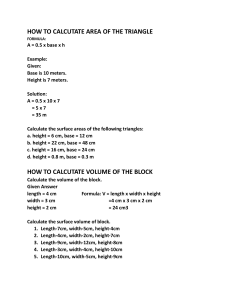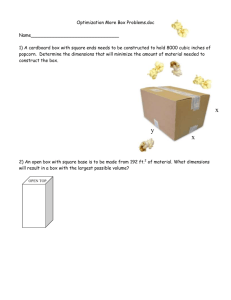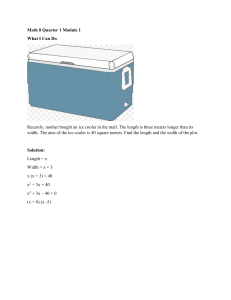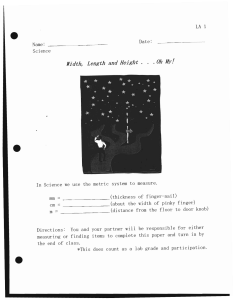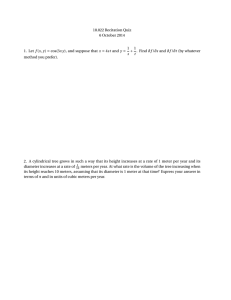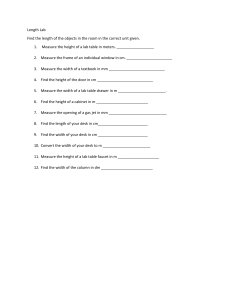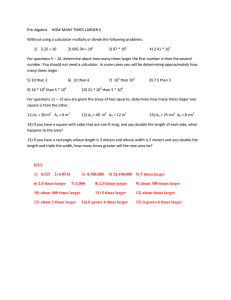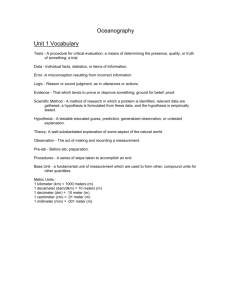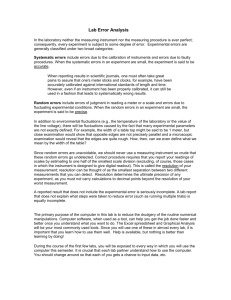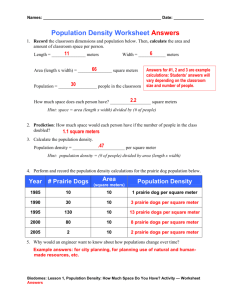Learning Targets *I Can ** - Milton
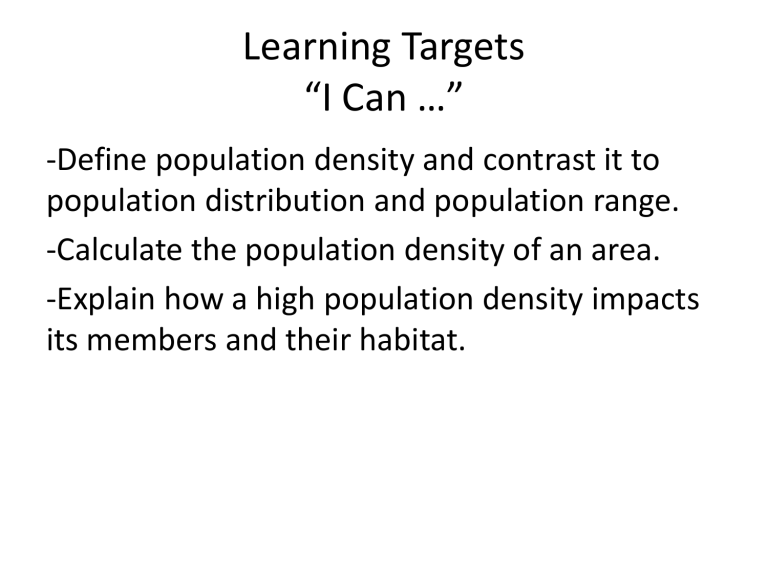
Learning Targets
“I Can …”
-Define population density and contrast it to population distribution and population range.
-Calculate the population density of an area.
-Explain how a high population density impacts its members and their habitat.
Calculating Population Density
How are populations arranged within a given space?
Population Range
• The area inhabited by a population
Population Distribution
• How individuals in a population are spaced out across the range of the population
Population Density
• The number of individuals per unit area
Your Problem
• Your team is working for the fire department.
Your task is to analyze Room 4203 at Milton-
Union High School and calculate the population density. The Fire Code states that
MUHS classrooms have a maximum capacity of 0.40 students per square meter.
What you will do today…
• Measure the length and width of the classroom to calculate its area.
• Determine the population density of the classroom based on that area and the number of people in the room.
• Change the size of the room to see how population density is affected.
Your Hypothesis
• Predict the population density of the class by using the formula below:
POPULATION DENSITY= # OF PEOPLE/AREA
• Predict what will happen to population density as you decrease the size of the room.
• Predict what kind of behaviors will occur as you decrease the size of the room.
Experiment
1. Use a meter stick to measure the length and width of the classroom.
2. Calculate the area of the classroom in square meters.
3. Count the number of people in the classroom.
4. Calculate the population density of your classroom.
POPULATION DENSITY= # OF PEOPLE/AREA
Data
Classroom Length (m) Width (m) Area
(m2)
Individuals Population
Density
Observations
FULL
HALF
FOURTH
Conclusion
What is your overall recommendation to the fire department? In other words, does the classroom meet fire code? What number of people in the room would exceed the fire code?
Conclusion
1. Most people in the United States live in urban areas. One hundred and sixty five million people live on about 91,605,000 square meters of land. Calculate the average population density in this area.
2. List two problems that are greater in urban areas than in other parts of the United
States.
References
• http://thefisheriesblog.com/2013/07/29/get-toknow-an-introduced-species-northernsnakehead/
• http://stophoneysuckle.org/location/
• http://thesurvivalplaceblog.com/tag/u-spopulation-density-map/
• https://www.flickr.com/groups/824440@N20/po ol/ohiofiredept/page3/
• http://www.indianafiretrucks.com/pages/st_jose ph/south_bend/10-11.html
